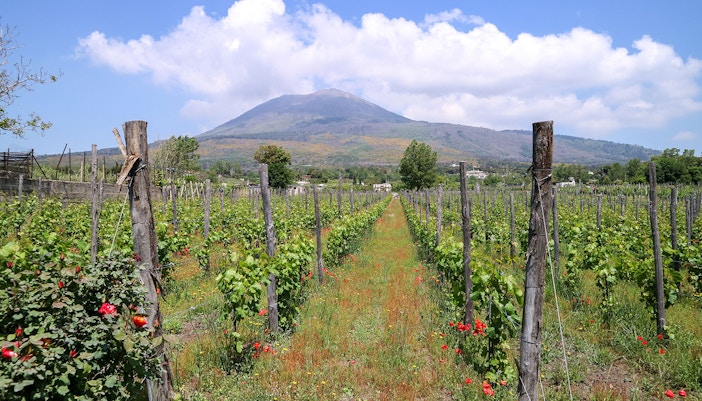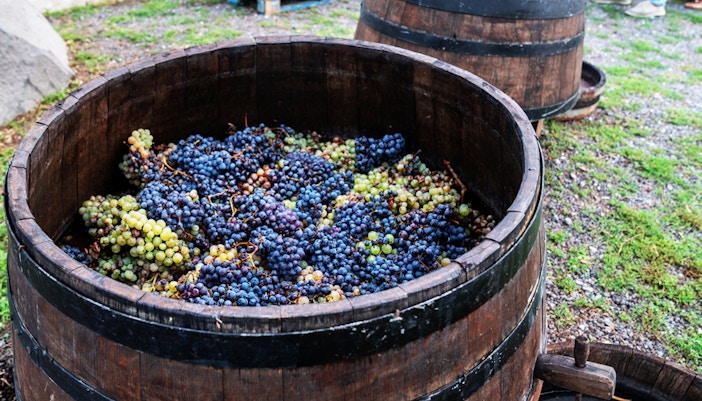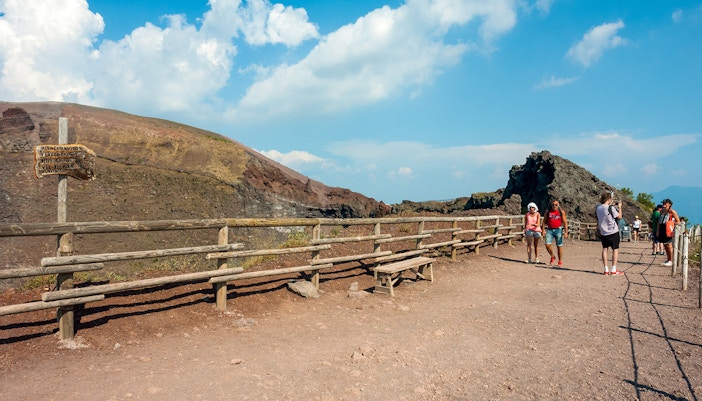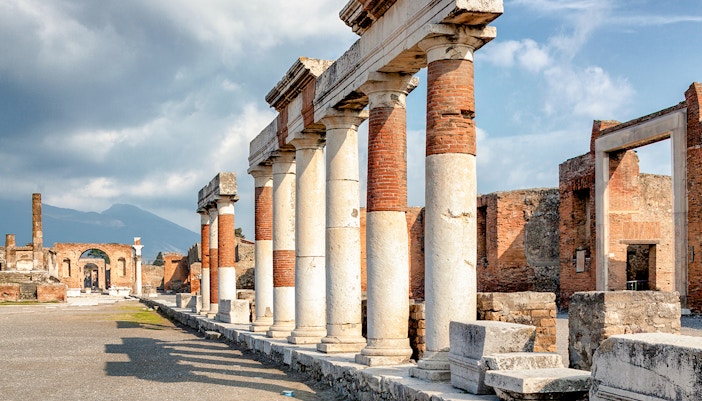This fifth generation wineyard is known for its unique wines like Caprettone and Aglianico, giving a taste of authentic Campanian flavors.
Popular Mount Vesuvius wineries

Sorrentino Vesuvio

Cantine Villa Dora
This organic winery stands out for its unique volcanic terroir within Vesuvius National Park, and includes Gelsonero and Vesuvio Rosso reds, Forgiato (limited edition), Gelsoros rosé, Vesuvio Bianco and Vigna del Vulcano whites.

Azienda Agricola Fuocomuorto
Grapes in this farm are processed onsite, aging in a natural cave carved into volcanic rock since 1780. It also offers a cozy Bed & Breakfast for six, with bedrooms, bathrooms, and a tasting room for sampling their distinctive wines.

Cantine Villa Dora
Founded in 1997 by Vincenzo Ambrosio, the winery focuses on producing top-notch wines like Gelsonero, Vesuvio Rosso, and the exclusive Forgiato.

Tenuta Le Lune del Vesuvio
Tenuta Le Lune del Vesuvio, located in the Vesuvius National Park near Terzigno, is just a stone's throw from Pompeii. Since 1940, the Forno family has cultivated their vineyards with meticulous care, producing their renowned Lacryma Christi.

Casa Setaro
Casa Setaro Winery's blend of tradition and innovation yields a diverse wine selection, including Munazei White and Aryete Red, complemented by exceptional extra virgin olive oils.









